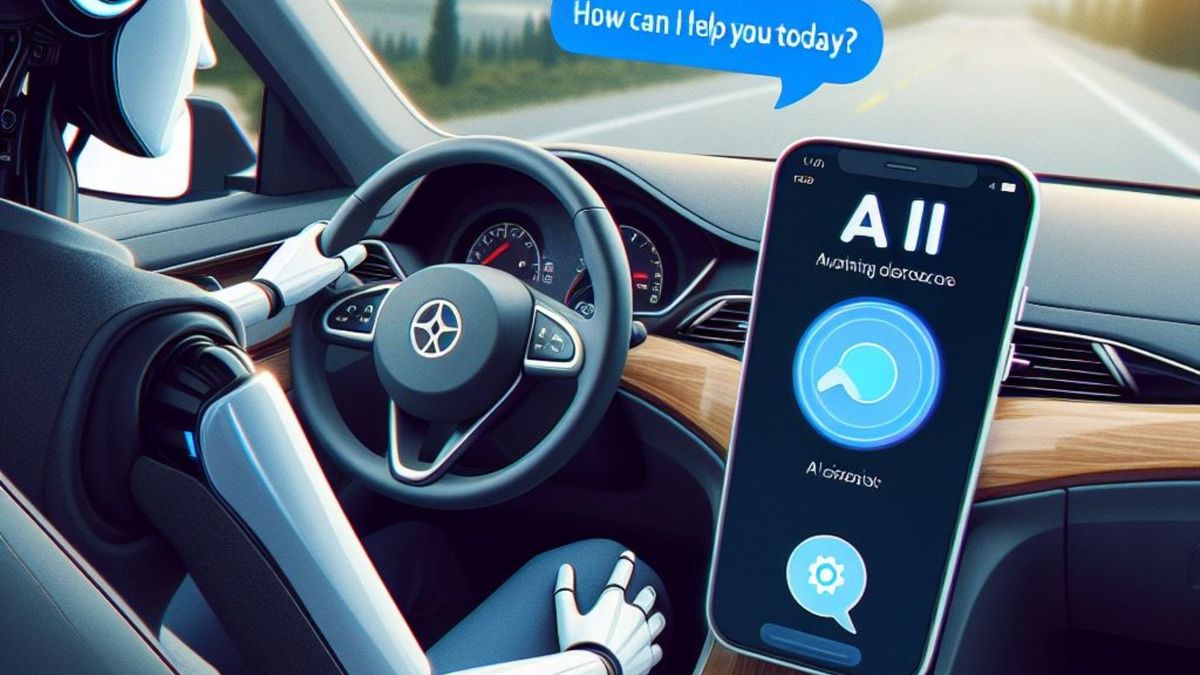Microsoft and TomTom team up to bring a fully-fledged AI assistant to your vehicle's infotainment system
While your stock infotainment system can help you achieve a lot when crusing through the highway, but this new AI integration makes it even better.

What you need to know
- Microsoft and TomTom are partnering up to bring an AI-powered assistant to your vehicle's infotainment system.
- The new technology will provide users with a “more sophisticated voice interaction.”
- When compared to the stock infotainment system found in cars, the new integration will let users find convenient stop locations within the route, open windows, control the aircon, and more.
A fully-fledged AI-powered assistant is well on its way to your vehicle's infortainment system. This comes after Microsoft and TomTom recently announced their newly found partnership. While the stock infortainment system on your vehicle can achieve a number of things, this new integration promises a “more sophisticated voice interaction.”
TomTom specializes in digital mapping technology, and thanks to this new integration, the company allow users to interact with the infotainment systems on their vehicles more naturally while trying to navigate your way to a destination, find convenient stop locations within your designated route, radio controls, or even to simply open your car door windows.
The AI-powered assistant will leverage OpenAI’s large language models like ChatGPT coupled with Microsoft's Azure Cosmos DB and Azure Cognitive Services. According to TomTom's Chief Revenue Officer, Mike Schoofs:
“By combining our navigation and technology expertise with Microsoft’s generative AI, we are driving innovation and providing our customers with even better solutions. We are transforming the in-vehicle experience, enabling drivers to ask their car for anything and trust it will deliver.”
AI-powered infotainment automotive solutions

In June, Microsoft and OpenAI started testing the integration of ChatGPT into Mercedes-Benz cars to engage in "human-like" dialog. However, this functionality was limited to vehicles with a MBUX “infotainment” system. Therefore, it's nice to see Microsoft's commitment to seeing these plans through.
According to Microsoft's Corporate Vice President for Manufacturing and Mobility, Dominik Wee:
“With this next generation of AI, we have a unique opportunity to accelerate innovation across the entire automotive sector. We’re building on our longstanding collaboration with TomTom and bringing together AI advances across the Microsoft Cloud with TomTom's automotive expertise to provide drivers and carmakers with new AI-powered tools. This integration will enable OEMs to offer highly differentiated and unique cockpit experiences, while preserving their unique brand identity.”
Get the Windows Central Newsletter
All the latest news, reviews, and guides for Windows and Xbox diehards.
It's still unclear when this assistant will ship to your vehicle's infotainment system via TomTom's digital mapping technology, other than it should be "soon." That said, it'll be interesting to see how generative AI impacts navigation systems when incorporated into infotainment systems.
Are you excited to see an AI-powered assistant potentially make its way to your vehicle for all your navigation needs? Share your thoughts in the comments.

Kevin Okemwa is a seasoned tech journalist based in Nairobi, Kenya with lots of experience covering the latest trends and developments in the industry at Windows Central. With a passion for innovation and a keen eye for detail, he has written for leading publications such as OnMSFT, MakeUseOf, and Windows Report, providing insightful analysis and breaking news on everything revolving around the Microsoft ecosystem. While AFK and not busy following the ever-emerging trends in tech, you can find him exploring the world or listening to music.